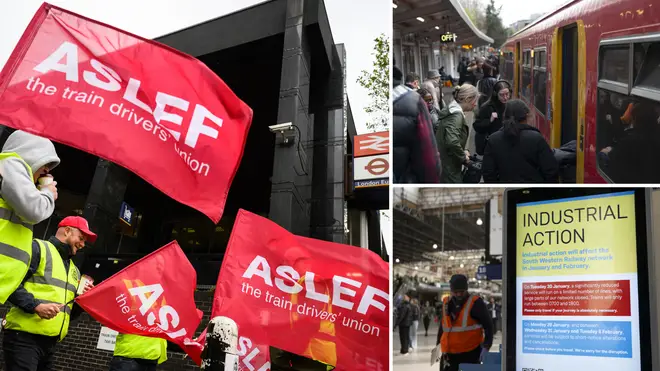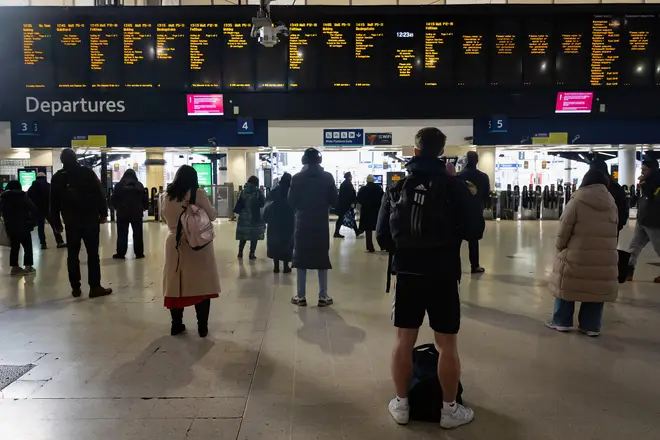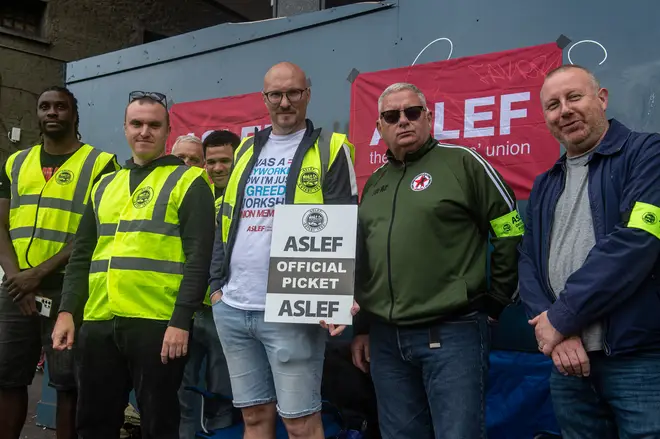
Ali Miraj 12pm - 3pm
30 January 2024, 00:06 | Updated: 30 January 2024, 00:12

Ministers were warned that the new minimum service legislation would be doomed to fail after fears that it would make industrial relations worse and cause further travel chaos for passengers.
The new rule would have forced unions to provide at least 40 per cent of timetabled services during strike action in a bid to curb disruption.
Prime minister Rishi Sunak is said to be disappointed that the new legislation has not been implemented by train firms, according to No10.
The prime minister’s spokesman told the Times: “It’s something the rail operators called for many months ago and the public would rightly expect them to be used if strike action is taking place.”
They added: “It’s ultimately up to train operators to effectively manage their services, we have been as clear as possible that they should be as ready to use all powers available to them to reduce the impact of rail strikes on passengers".
Passengers have been warned to expect mayhem on the rail network, with Aslef member refusing to work overtime - which began on Monday - and is expected to continue until Tuesday 6 February.

But the travel misery will be stepped up from Tuesday 30 January to Monday 5 February with walkouts in the long-running dispute over pay and working conditions.
Last week, Aslef called off a five-day strike on LNER services after the train firm withdrew its demand to enforce the Minimum Service Level legislation.
Unions have warned that the new rule is unworkable and could cause further frustration amongst passengers if they are led to believe that a certain number of trains will run.
Not one of the train companies affected by the new strikes have said they will implement the legislation, after train firms privately lobbied the government to introduce the rule after a wave of strikes.
Labour said it would repeal the controversial legislation if it wins the next election.
One government source told the Guardian: “The train companies lobbied us for this ahead of the 2019 manifesto and they've got what they wanted so we would very much hope that they would use those powers.

“We aren't going to grandstand and publicly urge them to do it but we quietly expect them to do so.”
Earlier this month, ASLEF’s general secretary Mick Whelan said: "We have given the government every opportunity to come to the table but it has now been a year since we had any contact from the Department for Transport.
“It's clear they do not want to resolve this dispute.
"Many of our members have now not had a single penny increase to their pay in half a decade, during which inflation soared and with it the cost of living.
“Train drivers didn't even ask for an increase during the Covid-19 pandemic when they worked throughout as keyworkers, risking their lives to allow NHS and other workers to travel.
"The government has now tried their old trick of changing the rules when they can't win and brought in Minimum Service Levels legislation.
“ But this new law, as we told officials during the consultation period, won't ease industrial strife. It will likely just make it worse.
"There's no excuse. The government and train operating companies must come to the table with a realistic offer so we can end this dispute and work together to ensure the future of our railways."